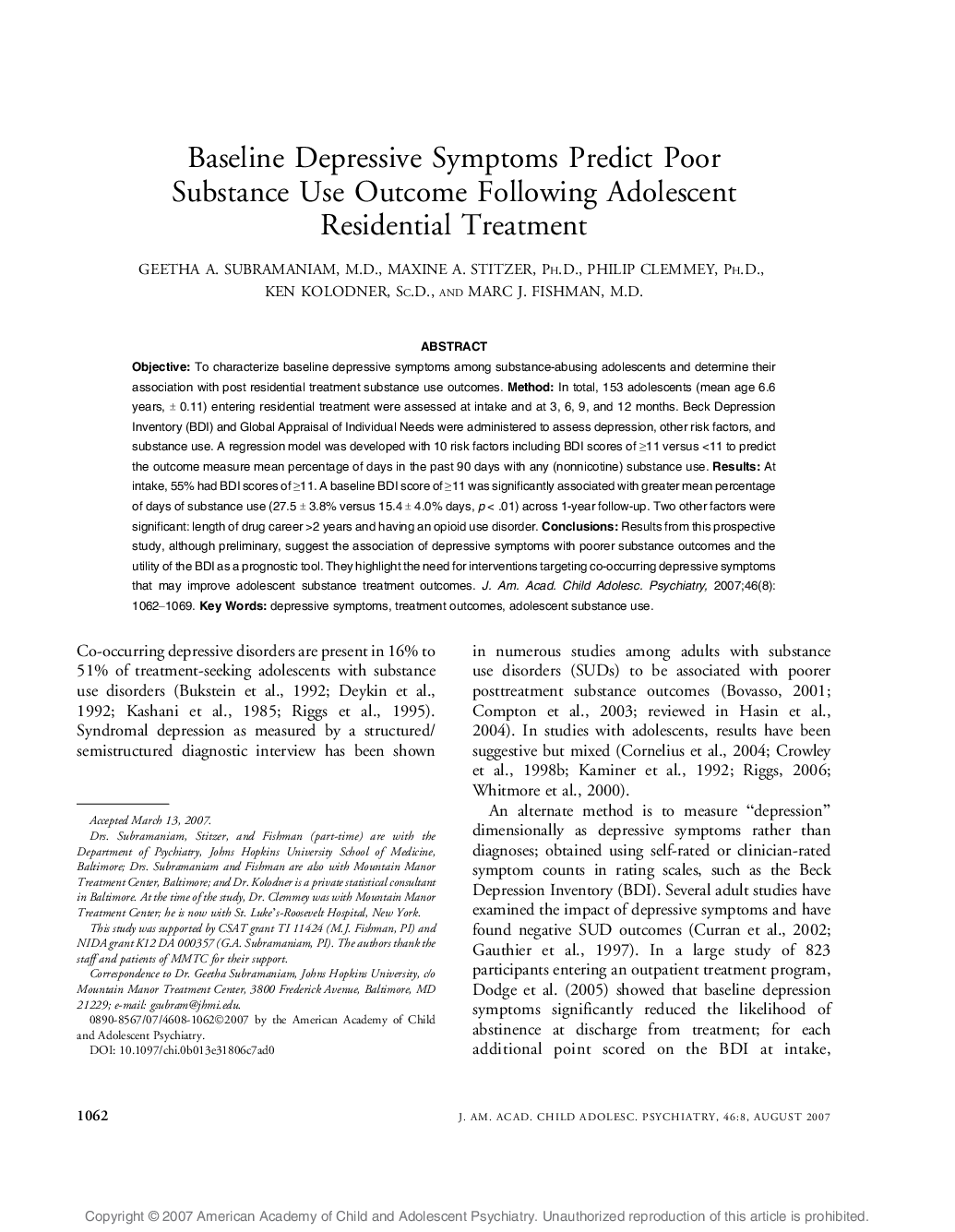| Article ID | Journal | Published Year | Pages | File Type |
|---|---|---|---|---|
| 325737 | Journal of the American Academy of Child & Adolescent Psychiatry | 2007 | 8 Pages |
ABSTRACTObjective:To characterize baseline depressive symptoms among substance-abusing adolescents and determine their association with post residential treatment substance use outcomes.Method:In total, 153 adolescents (mean age 6.6 years, ± 0.11) entering residential treatment were assessed at intake and at 3, 6, 9, and 12 months. Beck Depression Inventory (BDI) and Global Appraisal of Individual Needs were administered to assess depression, other risk factors, and substance use. A regression model was developed with 10 risk factors including BDI scores of ≥11 versus <11 to predict the outcome measure mean percentage of days in the past 90 days with any (nonnicotine) substance use.Results:At intake, 55% had BDI scores of ≥11. A baseline BDI score of ≥11 was significantly associated with greater mean percentage of days of substance use (27.5 ± 3.8% versus 15.4 ± 4.0% days, p <.01) across 1-year follow-up. Two other factors were significant: length of drug career >2 years and having an opioid use disorder.Conclusions:Results from this prospective study, although preliminary, suggest the association of depressive symptoms with poorer substance outcomes and the utility of the BDI as a prognostic tool. They highlight the need for interventions targeting co-occurring depressive symptoms that may improve adolescent substance treatment outcomes.
